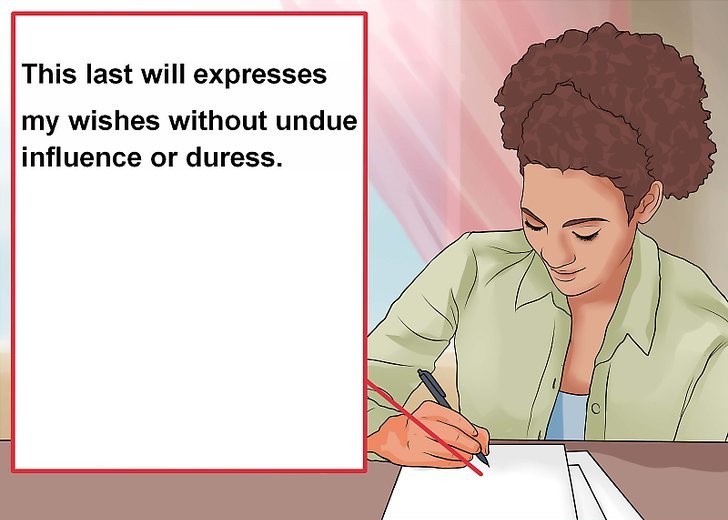
Writing your own will.
Think hard before you start
Writing your own will is rarely the best solution and often ends up being more expensive than retaining an attorney. If you decide that it is right for you, here are some things to bear in mind.
If you are going the DIY route, you’ll need to research your state’s laws. The rules can be quirky: Handwritten wills may not require any witnesses, for instance — but only half of states accept these wills as binding.
A newly drafted, typed will now requires two witnesses’ signatures to be valid, wherever you are — but an older typed will that was executed in a state like Vermont or Georgia, which used to require three witnesses, will be subject to the old requirements unless it is updated.
You may also want to know if your state has an estate or inheritance tax and how to plan for it. About six states impose an inheritance tax, to be paid by any heirs who live in that state, while a dozen states impose an estate tax, which gets paid on your overall assets. (That’s on top of the federal estate tax, which affects only the wealthiest estates.)
For instance, if you are dividing assets evenly between heirs, and one lives in a state with an inheritance tax, you’ll need to decide whether to set aside additional assets to cover the tax hit.
Designate Beneficiaries
A will won’t cover all of your assets. A lot of people make up a will thinking it disposes of the whole estate. But it doesn’t. Anything that’s in joint name or payable to a named beneficiary, such as life insurance policies or 401(k) balances, is outside the scope of a will.
Before you even start a will, you should assign beneficiaries for as many accounts as possible.
You can also create transfer-on-death or payable-on-death designations for checking, savings, and money market accounts, as well as certificates of deposit and U.S. bonds. You should be able to set up a payable-on-death account — which lets your beneficiary collect the funds without having to go through probate court — at your bank, or add designations to existing accounts. The requirements vary by institution, though, so it’s worth making a call to find out what’s needed.
Almost all states also allow you to name someone that will inherit any stocks, bonds or brokerage balances upon your death. And over a dozen states allow you to set up transfer-on-death stipulations for vehicles and real estate.
Consider using an attorney
While a DIY will may be better than nothing, a professionally drafted document can do far more to protect your heirs — particularly if the beneficiaries you’d choose aren’t those provided by your state’s intestacy law.
Often a will is billed as a flat fee, rather than an hourly rate. So if cost is a concern, you can call ahead to ask what the fees are.
If you can’t afford the fee there are some programs where lawyers have agreed to provide initial half-hour consultations that are generally free or cost less than $50.
Paying a bit more now for a good, legally drafted will can also save your heirs money, particularly if they are not the beneficiaries designated by your state intestacy statutes. If your surviving family or friends are not the designated successors, they may have to spend thousands (or hundreds of thousands) of dollars fighting for what they are entitled to.
People like these do-it-yourself wills because they don’t like to pay legal fees. But the DIY will can become the most expensive bargain.
Spell Things Out
Once you’ve taken care of beneficiary forms and checked out your state law, write out your intentions.
You need to spell out who you are and the purpose of the document. Statements like “I declare that this is my last will and testament” and “I declare that I am of legal age to make this will, and that I am sound of mind” are critical to ensuring your will is taken seriously by your heirs and the courts.
If you are using a will to pass on your house, for instance, include the full address when identifying the property. For personal items, include a complete description. And use the full names of beneficiaries, rather than just referring to them as “my wife” or “my child.”.
Name an executor you trust — and tell them where to find your will. This is the person who will be wrapping up your affairs after your death and eventually distributing your assets. Also name a secondary executor or a co-executor, in case your first choice is unable to carry out the task or predeceases you.
For each child, you should name one person as a guardian and another as an alternate. It’s perfectly legal (but not necessary) to pick different guardians for each child.
Perhaps the most difficult aspect of a DIY will is thinking through all the contingencies. Say you’re leaving everything to your sister. But what if your sister predeceases you? Do you want the property to pass to her children? Or do you want to go to your other siblings? Describe the contingencies for each portion of your will.
